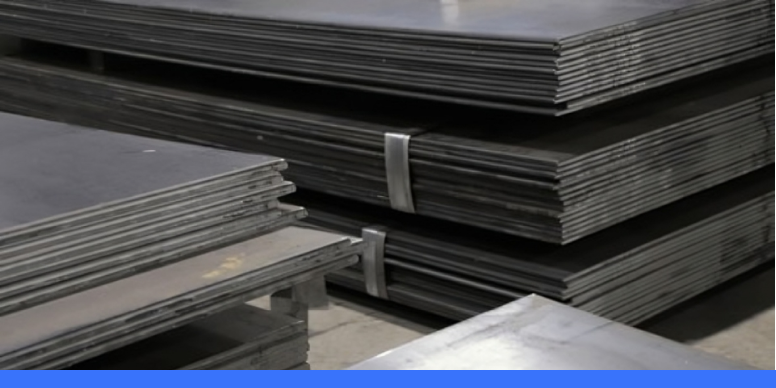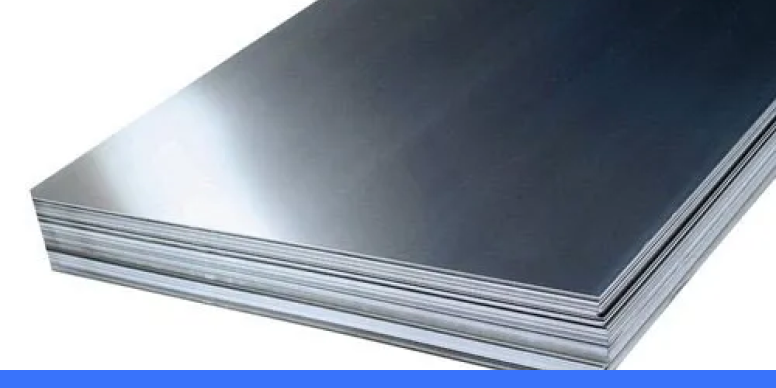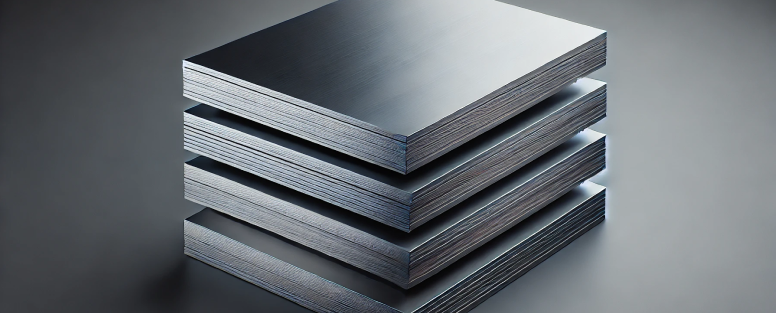When it comes to versatile and durable materials for industrial and construction needs, carbon steel plates stand out as a top choice. Known for their strength, cost-effectiveness, and adaptability, these plates have become an essential component across various industries. Whether you’re searching for carbon steel sheets, exploring different carbon steel plate grades, or looking for reliable carbon steel plate manufacturers in India, this guide covers it all.
What Are Carbon Steel Plates?
Did you know?
Understanding Carbon Steel Plate Grades
Carbon steel plates come in different grades, classified based on their carbon content and intended usage. Here’s an overview:
Low Carbon Steel Plates

- Carbon Content: Up to 0.25%.
- Key Features: High malleability, excellent weldability, and low tensile strength.
- Applications: Used in automotive panels, pipelines, and light structural components.
- Example Grades: ASTM A36, C1010, C1020.
Medium Carbon Steel Plates

- Carbon Content: Between 0.25% and 0.60%.
- Key Features: Balanced strength and toughness, suitable for machining and forming.
- Applications: Ideal for machinery parts, pressure vessels, and heavy-duty structural components.
- Example Grades: C1045, ASTM A283 Grade D.
High Carbon Steel Plates

- Carbon Content: Above 0.60%.
- Key Features: Superior hardness and wear resistance, less weldable.
- Applications: Used for cutting tools, springs, and high-strength wires.
- Example Grades: C1090, ASTM AISI 1095.
Specialized Carbon Steel Grades
- Examples: ASTM A516 (for boilers and pressure vessels), ASTM A572 (for high-strength structural applications).
- Applications: Common in shipbuilding, construction, and heavy machinery industries.
Applications of Carbon Steel Plates
Carbon steel plates and sheets are incredibly versatile and come in different grades, making them widely used across industries. Here are some common applications:
Construction Industry:
Carbon steel plates are essential for building bridges, skyscrapers, and structural frameworks. Their strength helps them handle heavy loads, ensuring long-lasting durability even in tough conditions. This makes them a top choice for critical infrastructure projects.
Automotive Industry:
Medium-carbon plates are commonly used to make gears, axles, and machinery parts that need to be durable. These plates improve the performance and lifespan of key automotive components, helping vehicles run smoothly even in demanding environments.
Manufacturing Equipment:
High-strength grades like ASTM A516 are vital for making boilers, storage tanks, and pressure vessels. These plates provide the reliability needed for industrial equipment, enabling them to handle high pressures and temperatures with ease.
Shipbuilding:
Low and medium-carbon steel plates are perfect for building ship hulls and marine structures. They resist corrosion in salty environments, ensuring safety and durability in harsh marine conditions. This makes them crucial for marine transportation.
Tools and Machinery:
High-carbon steel plates are a must for making industrial tools, cutting blades, and high-strength components. Their hardness and wear resistance ensures that tools stay effective for longer, even with regular use in demanding tasks.
How to Choose the Right Carbon Steel Plate Manufacturer in India
India is home to several reputed carbon steel plate manufacturers offering a wide range of products tailored to meet industry needs. Here’s what to consider when selecting a manufacturer:
- Quality Certifications: Ensure the manufacturer adheres to standards like ASTM, ISO, or IS certifications.
- Customization Options: Check if they can customize plate thickness, size, and grade for your requirements.
- Supply Capability: For large projects, reliable bulk supply is crucial.
- After-Sales Support: Opt for manufacturers that offer technical support and consultations for applications.
Carbon steel plates offer unparalleled versatility and strength for various industrial and construction applications. Whether you need a carbon steel sheet for a lightweight project or a high-grade plate for heavy machinery, understanding carbon steel is essential to making the right choice.
Riyaarth Overseas offers a wide range of premium carbon steel products tailored to diverse industry requirements. Visit our website today to explore our offerings and invest in the durability and cost-effectiveness of carbon steel for your next project!
FAQ's
The three main grades of carbon steel are low carbon (mild steel), medium carbon, and high carbon steel. Each grade varies in carbon content, offering different strength, hardness, and ductility levels.
Carbon steel plates are widely used in construction, manufacturing, shipbuilding, and the production of industrial machinery. They are valued for their strength, durability, and adaptability to various environments.
Low-carbon steel contains less carbon and is softer, making it easier to weld and form. Medium carbon steel has balanced strength and ductility, while high carbon steel is harder and stronger but less malleable.
Yes, they can be tailored in size, thickness, and grade for various applications. Customization ensures compatibility with specific project requirements, enhancing efficiency and performance.

